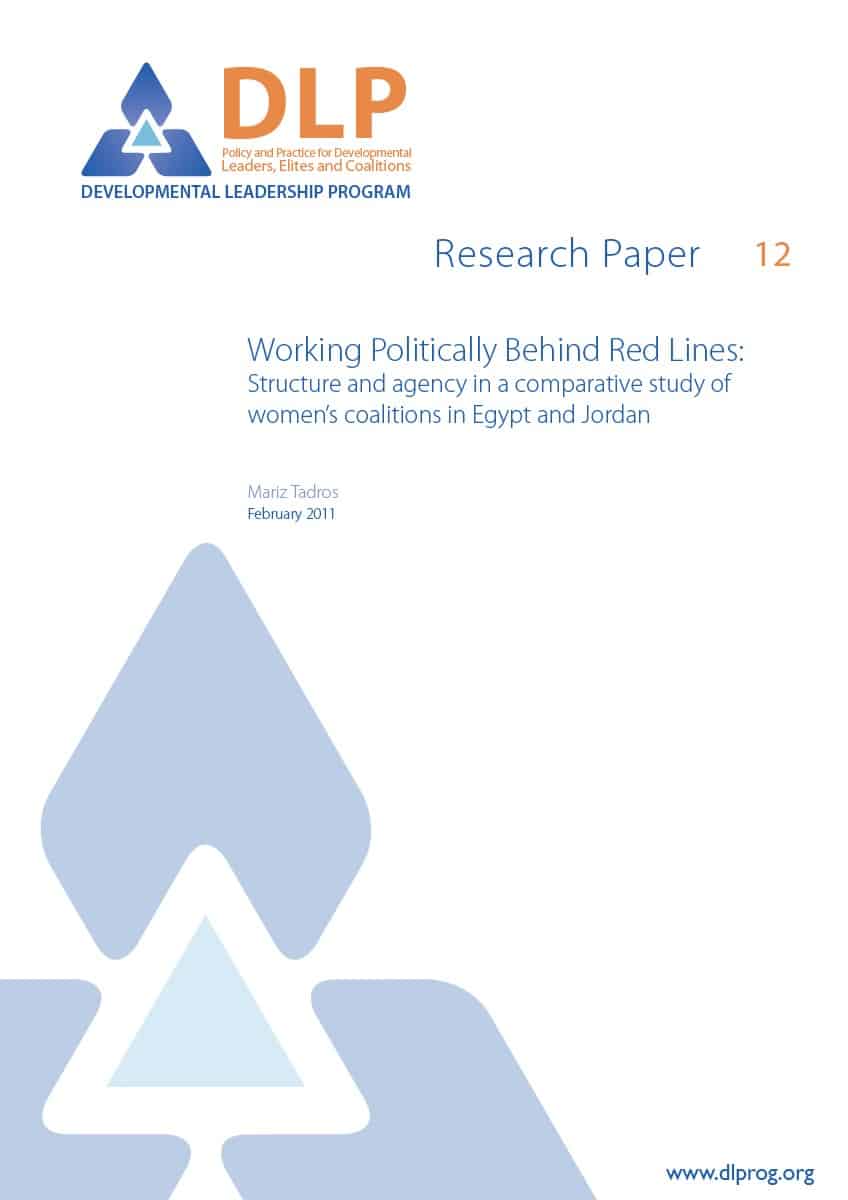This study examines six cases of collective initiatives to advance women’s rights in Egypt and Jordan between 2000 and 2010. It explores what accounts for the emergence, success and failure of women’s coalitions in these two countries.
Using a case study approach, the study examines the interface between collective agency and structure in two national contexts characterized by authoritarian rule and powerful Islamist movements strongly opposed to any structural transformation of gender hierarchies.
Key points:
The research suggests that politically-inhibiting and closed policy environments can seriously undermine the potential of collective action to influence positive policy change.
Yet the ability to ‘work politically’ is critical if activists are to make progress towards their goals and develop strong coherent internal organizational structures.
Policy change relies heavily on informal relationships rather than formal citizen-state engagements. Engaging in informal or ‘backstage politics’ is equally – if not more – important than using formal channels of engagement.
The study examines how the international community has positively contributed to the success of such coalitions, and where its methods have compromised the development and consolidation of coalitions and their policy impact. Key policy messages that may help donors and supporters in the international community to support women’s coalitions are identified.









